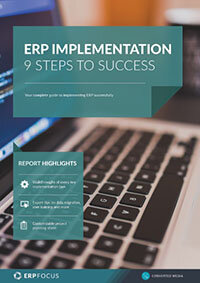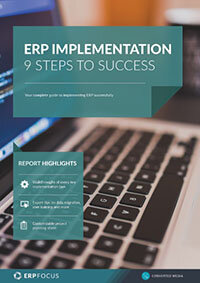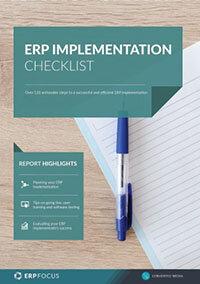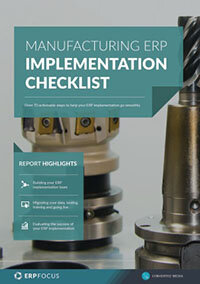What are the main benefits of implementing an ERP system?
ERP systems are expensive to own. There is a high cost to implement the system and then further costs to maintain it over time. Yet, businesses and other organizations use ERP every day and continue purchasing new systems and improving their existing systems. What are some of the main benefits that justify those costs?
Better business decisions
Businesses rarely grow and develop following an orderly path. Individual people and departments find needs over time and develop solutions, often with little consideration of the needs of other departments. Spreadsheets are an excellent symptom of those disorderly changes. A spreadsheet is easy to create and many have the basic skill to create quite complex sheets. They are notoriously difficult to manage and share within the enterprise.
ERP provides an opportunity to eliminate spreadsheets as the data and information required for any user or department will be within the same ERP system and exposed for all through common business intelligence reports, dashboards, and reports.
Whether the workaround was a spreadsheet, an external database, or papers in a file cabinet, ERP will help an enterprise stay in tune as all will sing from the same sheet of music.
Regulatory compliance
Compliance requirements for a business takes many forms. One is specific formats and content for financial statements. ERP systems are sold everywhere and the developers put much effort into maintaining high quality and conformance to GAAP or the generally accepted accounting practices in all the developed countries. Even if your business has some unique disclosure requirements, ERP gives you custom reporting tools to meet your needs.
Other compliance requirements often come from the ERP quality system support. Inspections of all kinds follow precise protocols as inspectors record step-by-step processes following the programmed sequence in their ERP as measurements are made, the results are stored in ERP where they are available for reports and analyses as needed to answer any compliance requirements.
Free users to generate profits
Today’s ERP systems all provide a common interface within each module. This makes training users much faster and enables a business to quickly retrain in other systems as needs evolve. In addition, screen interfaces are designed to quickly and efficiently input the transactions. The same screens are customizable, too, enabling further improvements in transactional efficiency. Often a series of related transactions in different departments can be strung together using workflow tools. All of this means users spend less valuable time performing the transactional details of their work and can spend more time in ways that benefit the business and build profits.
Use the ERP configuration tools to set defaults that help users by completing cells automatically. Every second saved adds up to cost savings. Customize some transactions so the best action for the business from a transaction is set by default. Think of a production worker who just completed a task. When they check for the next job, the system gives them one that is optimized and makes cherry-picking the next job less attractive.
Conclusion
These are only a few ways a business will benefit from implementing an ERP. Look at the needs your business has right now. Few of us have a business so well-run that an ERP will not provide benefits that greatly exceed the cost of the change.
Free white paper

ERP Implementation: 9 steps to success
The 9 proven steps you should follow when implementing ERP

Featured white papers
-

ERP Implementation: 9 steps to success
The 9 proven steps you should follow when implementing ERP
Download -

ERP Implementation Checklist
Over 120 actionable steps to implementing a new ERP successfully
Download -

Manufacturing ERP Implementation Checklist
Over 70 actionable steps to rolling out new manufacturing ERP software
Download
Related articles
-

The case for multi-tier ERP implementations
Learn more about multi-tier ERP implementation and why you might need one
-

CMMC Compliance: What Aerospace and Defense Manufacturers Need to Know
Key insights on CMMC compliance, deadlines, and securing DoD contracts with CMMC 2.0 certificatio...
-

An example ERP implementation team structure for your project
Learn about three key elements of an ERP implementation team and the individuals who contribute w...

